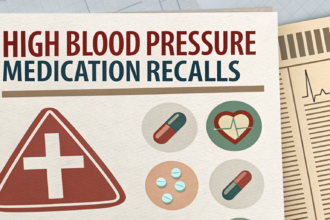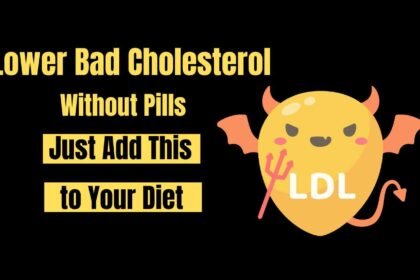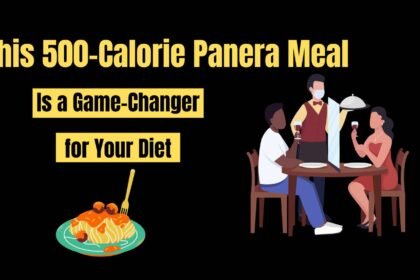Summer BBQs are incomplete without two all-time American favorites – hot dogs and hamburgers.
Whether you’re flipping patties on the grill or boiling up some franks, these classic staples dominate backyard cookouts and holiday celebrations.
But if you’re trying to eat healthier or be more conscious of your nutritional intake, you may be wondering: which one is the better choice – hot dogs or hamburgers?
Let’s break it down and explore the nutritional differences, ingredients, and health implications of these two grill-time favorites.
What’s in a Hot Dog?
A hot dog is typically made from processed meat – usually pork, beef, or chicken. The meat is ground, seasoned, and stuffed into a casing before being cooked or smoked.
Most hot dogs also contain preservatives like nitrates or nitrites, which are used to extend shelf life and maintain their signature pink color.
Average nutritional profile of a standard beef hot dog (without the bun):
- Calories: ~150–180
- Protein: ~5–7g
- Fat: ~13–15g
- Sodium: ~500–600mg
- Carbohydrates: 1–2g
Add a white bun, mustard, ketchup, and toppings like relish or onions, and the calorie and sodium count rises significantly.
What’s in a Hamburger?
A traditional hamburger consists of ground beef formed into a patty and grilled or pan-fried.
Unlike hot dogs, hamburgers are usually made from fresh (or frozen) ground meat with little to no processing.
You can even control what goes into your patty – lean beef, turkey, chicken, or even plant-based alternatives.
Average nutritional profile of a standard ground beef hamburger patty (85% lean, 15% fat):
- Calories: ~250–300
- Protein: ~18–22g
- Fat: ~20–22g
- Sodium: ~75–100mg
- Carbohydrates: 0g
Add a white hamburger bun, cheese, ketchup, mayo, and pickles, and again, the calories jump – often to over 500–700 per burger.
Protein Content: Hamburgers Win
When it comes to protein, hamburgers clearly offer more. A typical patty provides around 18–22 grams of protein, compared to only 5–7 grams in a hot dog.
Protein is essential for muscle maintenance, satiety, and overall metabolic health. So if your goal is to feel fuller longer or support muscle-building, burgers are a better choice.
Fat and Calories: It’s a Toss-Up
Both options can be high in fat and calories, depending on portion size and toppings.
- Hot dogs tend to have a higher percentage of saturated fat and additives per gram.
- Hamburgers, especially when made with lean ground beef or turkey, can be tailored to reduce fat.
If you’re watching your weight or heart health, you can opt for leaner meats (like ground turkey or chicken) in your burger, or choose a hot dog made from chicken or turkey instead of beef.
Sodium Levels: Hot Dogs Are the Saltier Culprit
One of the biggest nutritional drawbacks of hot dogs is their high sodium content. A single hot dog can contain over 600mg of sodium, and that’s before the bun and condiments.
In contrast, a plain beef burger patty has much lower sodium – usually under 100mg, unless you season it heavily.
Excess sodium can lead to high blood pressure, kidney stress, and water retention. So if you’re on a low-sodium diet, burgers are the safer bet.
Additives and Preservatives: Hot Dogs Raise Red Flags
Hot dogs are processed meat products. Most contain preservatives like nitrates and nitrites, which have been linked in studies to an increased risk of colon cancer and other health concerns.
The World Health Organization (WHO) classifies processed meats as Group 1 carcinogens, which puts them in the same category as tobacco – based on the strength of evidence, not the actual risk level.
Hamburgers, if made from fresh ground meat without fillers, are less processed and don’t contain these chemical preservatives.
Customizability: Hamburgers Offer More Flexibility
Hamburgers give you more room to control the ingredients and portion sizes:
- Choose lean meats or plant-based patties.
- Add lettuce, tomato, onions, and avocado for extra nutrients.
- Use a whole wheat bun or lettuce wrap to cut carbs.
Hot dogs, on the other hand, offer limited customization. You can switch to chicken or turkey franks, but beyond that, the core product is fairly uniform and often processed.
Carbohydrates and Buns: It Depends on the Choice
Neither hot dogs nor burgers are heavy in carbs – until you add the bun. White buns add refined carbs, which can spike blood sugar and contribute to weight gain.
Whole grain or low-carb alternatives can reduce this impact for both options.
Tip: Swap traditional buns with lettuce wraps, low-carb tortillas, or whole-grain buns for a healthier BBQ experience.
Toppings and Condiments Matter
Both hot dogs and hamburgers can be nutritionally sabotaged by what you put on top:
- High-fat add-ons: Cheese, mayonnaise, bacon
- High-sugar condiments: Ketchup, BBQ sauce
- Extra sodium: Pickles, processed cheese, relish
Healthy swaps include:
- Mustard instead of ketchup (lower sugar)
- Avocado instead of cheese (healthy fat)
- Fresh veggies for crunch and fiber
Final Verdict: Which Is Healthier?
When comparing hot dogs vs. hamburgers, hamburgers come out as the healthier BBQ pick – if prepared with care.
Here’s why:
- Higher in protein
- Lower in sodium (when unprocessed)
- Less processed and fewer preservatives
- More customizable for healthy swaps
That said, not all hot dogs are bad – especially if you opt for uncured, nitrate-free turkey or chicken dogs.
However, due to the processing, sodium, and additives, hot dogs should be an occasional treat, not a staple.
Healthy BBQ Tips to Enjoy Both Options
- Go Lean: Choose 90% lean ground beef or ground turkey for burgers.
- Watch the Bun: Use whole grain buns or lettuce wraps.
- Load with Veggies: Add tomatoes, onions, spinach, or avocado.
- Skip Processed Add-Ons: Avoid bacon, processed cheese, and heavy sauces.
- Hydrate: Drink plenty of water, especially with sodium-heavy foods.
Disclaimer
This article is for informational purposes only and is not intended to provide medical or dietary advice. Always consult a qualified healthcare professional or registered dietitian before making changes to your diet or nutrition plan, especially if you have existing health conditions or dietary restrictions.












